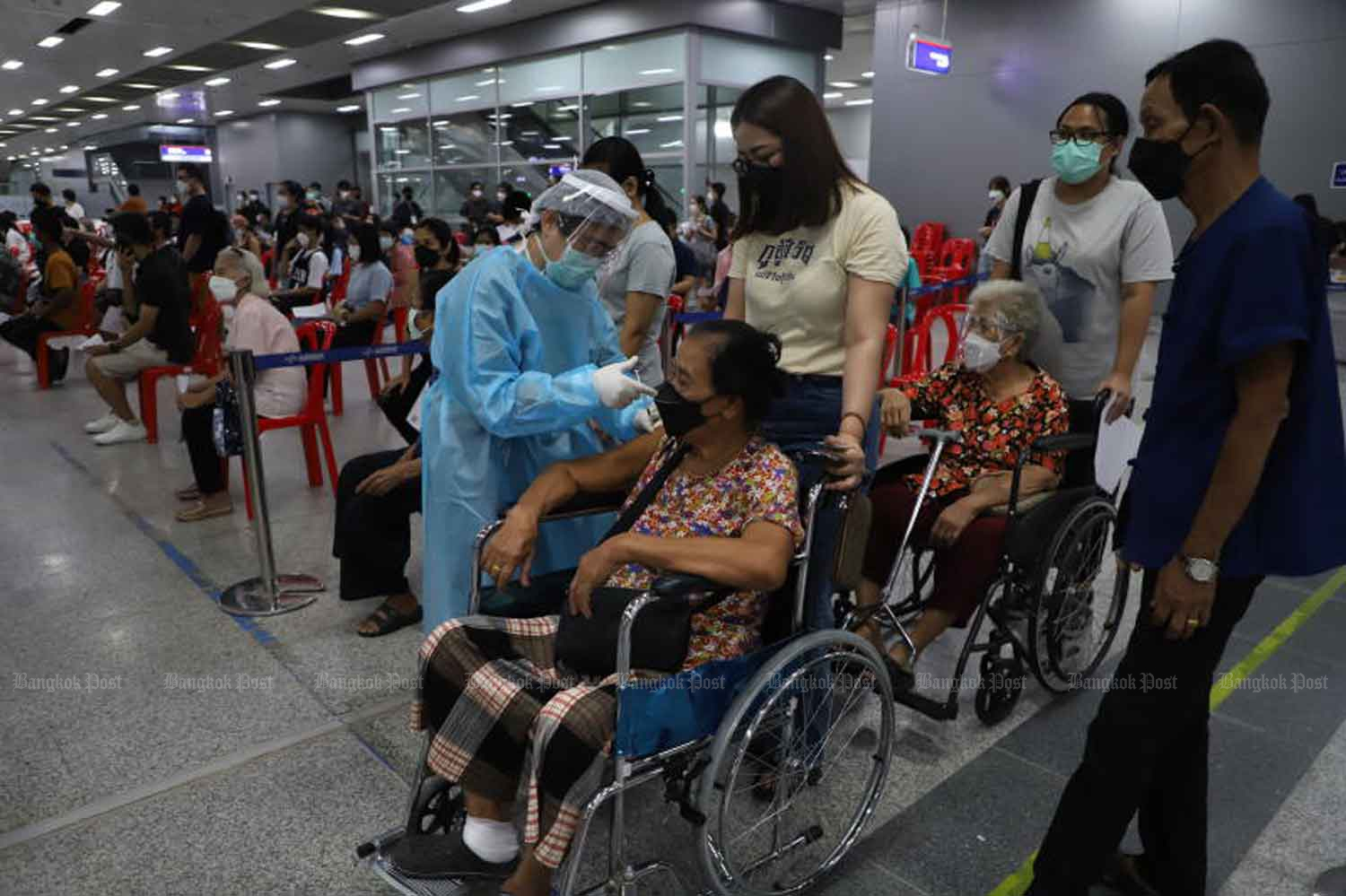
The Public Health Ministry has reiterated its call for almost 2 million elderly to get jabs against Covid-19, saying half of the deaths recorded last week were among people not vaccinated.
Dr Tares Krassanairawiwong, director-general of the Department of Disease Control (DDC), said despite the downtrend in Covid-19 infections and deaths, the elderly are vulnerable and vaccines are effective at preventing severe symptoms and deaths.
Citing the Covid-19 deaths recorded during Sept 25-Oct 1, 4,435 people were infected, or 634 cases per day, with 65 deaths, or nine per day. Of the deaths, 54 were the elderly, 36 had not received any vaccinations and 15 did not get their boosters.
Families of the elderly were strongly urged to take them for jabs or contact health volunteers for a home vaccination service if they could not travel to vaccination sites.
Inoculating some 1.9 million senior citizens remains the ministry's priority now that Covid-19 has become a communicable disease under surveillance and restrictions have been eased, said the DDC chief.
"The senior citizens are the most at-risk group because they haven't received a single shot and have some health issues. If they are infected, they have greater death risks," he said.
People with symptoms of respiratory illnesses must wear masks and take antigen tests to screen for Covid-19. The sooner they seek medical care or treatment, the better, he stressed.
Healthy people, on the other hand, can discard face masks but are advised to use them when visiting crowded areas and using public transportation, he said.
Newly appointed public health permanent secretary Opas Karnkawinpong on Monday urged health officials to live by the teaching of Prince of Songkla, father of modern medicine and public health, who urged them to work for the people first before themselves.
"During the Covid-19 pandemic everyone joined forces and proved how strong the country's public health system is, and we've received international recognition," he said while laying down guidelines to executives and senior officials.
Dr Opas, former director-general of the DDC, also instructed hospitals and provincial public health chiefs to draw up welfare improvement plans covering three years as well as hospital development plans.
He also stressed the importance of green energy and waste management, suggesting that hospitals should be equipped with solar rooftop panels and work to improve wastewater treatment.
